Trends and Innovative Practices by 2023 HICAP Sustainable Hotel Award Winners
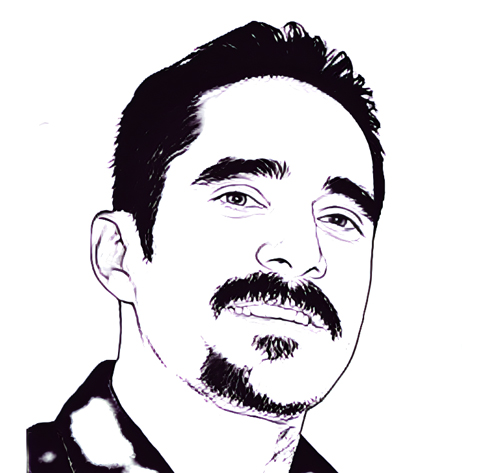
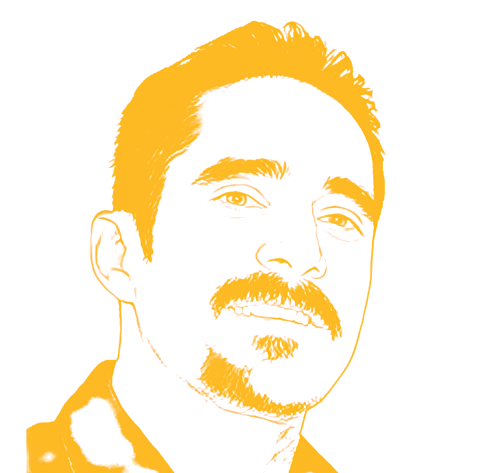


Synopsis
GreenView's Eric Ricaurte and Chelsea Wong, Consultant at Horwath HTL report on trends, innovations, and best practices from this year's HICAP Sustainable Hotel Award winners. The annual HICAP Sustainable Hotel Awards are designed to recognize hotels in the Asia Pacific region creating innovative new methods, strategies, and technologies to face today’s sustainable development challenge while providing tangible examples of sustainable best practices that can be replicated and adapted across the region.
The annual HICAP Sustainable Hotel Awards started in 2007 to recognize hotels in the Asia Pacific region creating innovative new methods, strategies, and technologies to face rising sustainable development challenges. More importantly, the award winners serve as tangible examples of sustainable best practices that can be replicated and adapted across the region. This year, there were 4 categories covering key areas of hotel investment, development, and operations, namely Building Renovation, Preservation, Adaptive Reuse and Conversion; Climate and Biodiversity Action; Positive Community Impact and Sustainable Design.
“Building Renovation, Preservation, Adaptive Reuse and Conversion” Award Winner - The Tamara Kodai, India
The Tamara Kodai is a 53-room resort located in Kodaikanal in the Nadu state in South-East India, more than 2,000 meters above sea level. The resort preservation transformed a heritage building complex built in 1840 into a luxury retreat. The renovation takes reference to the past, from celebrating the original tribes who lived atop the Palani hills and recognizing the more recent past as a British post and Jesuit priest repose. The resort serves as an example of a sustainable reuse which shows how to align luxury, modern hospitality trends and responsible tourism.
The heritage building complex has been restored with care to maintain its historical importance, implementing the use of techniques and materials used in the original construction, new extensions are built with original materials, upcycled railway sleepers are used in the cottage porches. The original roof structures have been restored and are exposed throughout the resort. Besides the buildings, the resort also preserved the existing trees on the site and introduced a variety of indigenous wild and fruit trees through strategic planting efforts.
Many active sustainable strategies are in place like rainwater harvesting, gray water recycling, wet waste composing, advanced STP and ETP facilities use, cutting edge heat exchanger technology and employment of solar panels.
The resort has a strong commitment to social sustainability, founding charities which support the local communities affected by conflict and climate related crisis. About 40% of the products used in the resort are produced locally for the creation of many local dishes. Additionally, art and pottery classes for guests are organized with local artists in Kodai. Overall, the resort also employs up to 50% of their associates from the local community. The resort demonstrated a blend of sustainable hospitality, historical significance and contemporary luxury, appealing to responsible travellers
seeking unique and culturally rich experiences.
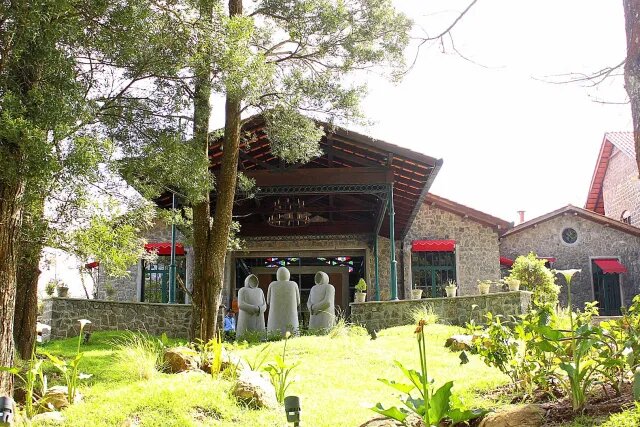
“Climate & Biodiversity Action” Award Winner - Soneva Fushi, Maldives
Situated on the Baa Atoll UNESCO Biosphere Reserve, the Soneva Fushi 72-villa resort is Soneva’s flagship. Already establishing carbon neutrality in 2012 for both its direct and indirect resort operation to cover its full scope 1, 2, and 3 emissions – including guest flights to the resort which comprise 70% of its total footprint – and having installed 2.5MWp of solar PV, Soneva is adding 1.9MWp of solar PV and 2.5MW capacity of battery storage, attaining 50% of its electricity from renewable sources.
Funded by an opt-out environmental levy on guestrooms, Soneva Fushi offsets its carbon footprint via contribution to Gold Standard carbon projects that have mitigated over 800,00 tons of CO2 and benefitted 350,000 people globally. These initiatives focus on biodiversity conservation such as providing stoves to communities in Myanmar to use for cooking to reduce deforestation from gathering wood, as well as tree-planting and reforestation. The Myanmar Stoves Campaign also brought excess credits to the resort which it could sell to other companies to offset their emissions. In return, the Soneva Foundation has generated US$ 2 million that has been reinvested into other projects. With this, the resort remains carbon neutral and expands its regenerative climate and biodiversity impact.
The past 2 years, recognizing the importance of coral reefs to ecosystems and the resort experience, Soneva Fushi embarked on a coral projection and restoration initiative, setting up a coral nursery of 50,000 coral fragments placed equivalent of one hectare of land using Mineral Accretion Technology, as well as establishing AquaTerra marine and terrestrial biodiversity science centre designed to replicate the natural environment on the reef to enable coral spawning, rescuing over 29,000 coral colonies to-date from dredging near Malé, and installing 28 micro-fragmenting tanks with a renowned coral specialist.
In addition, the resort also implements sustainable initiatives in water and waste management. Starting in 2008, it banned imported water and started to bottle its own in glass bottles. It not only saved 2 million plastic bottles but also inspired other hotel companies to follow suit. The resort also funds the
Soneva Foundation to provide safe water to 750,000 people around the world. To facilitate waste management in the region, the resort works with 22 local island communities through the NGO Soneva Namoona to provide a blueprint for all Maldivian islands on effective waste management. It also demonstrated the power of recycling via the Waste-to-Wealth programme which has generated US$ 2.5 million in value with 90% of waste recycled.
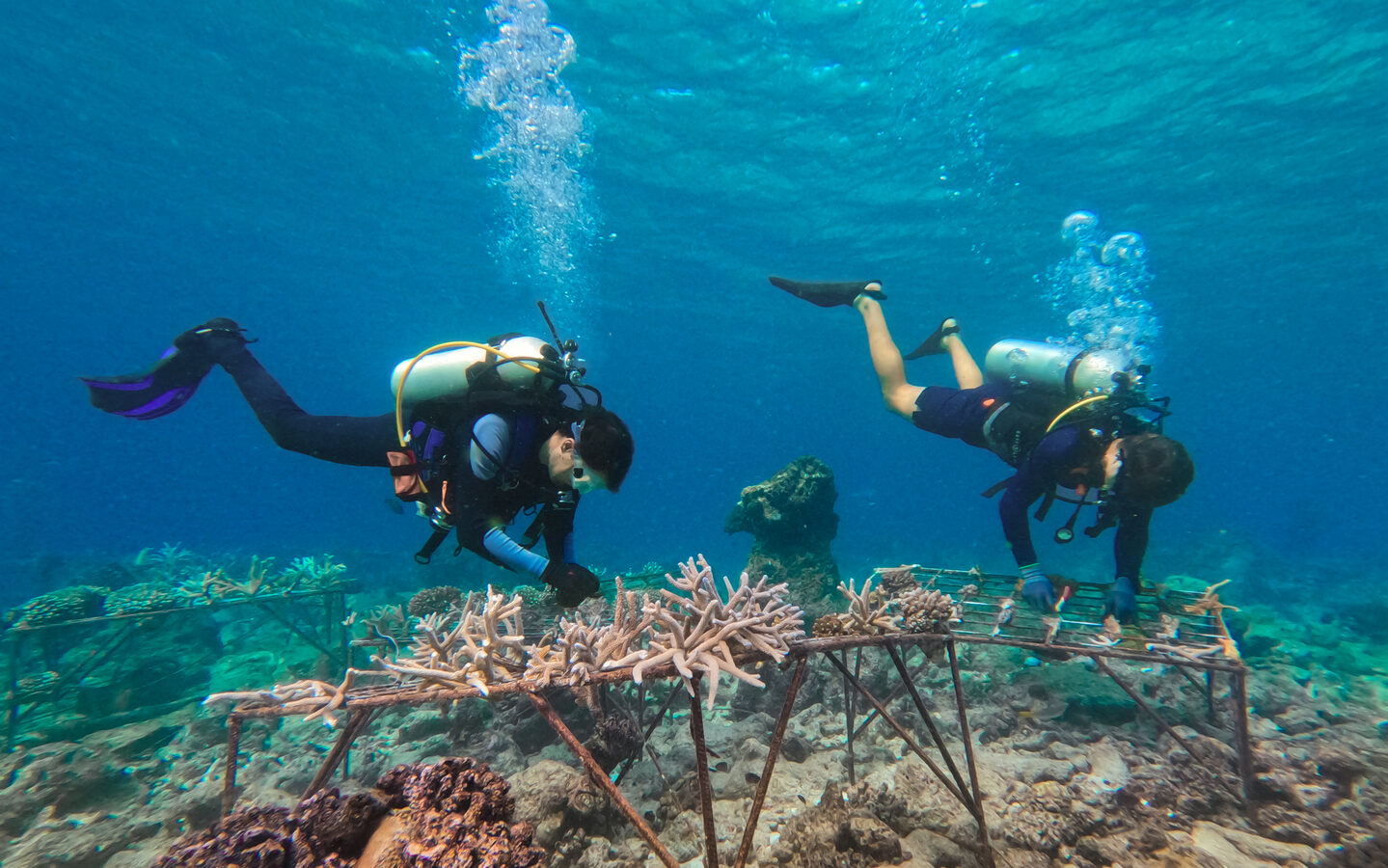
“Positive Community Impact” Award Winner - Cempedak Island, Indonesia
Located on an island off the coast of Indonesia in the Riau Archipelago, the 20-villa Cempedak Island, previous winner for the HICAP Sustainable Design Awards 2017, aims to have a positive impact for all stakeholders by minimizing any negative impact and having a long-term positive impact in the local community.
Through the lack of waste management solutions, plastic pollution has historically been a threat to the community, endangering the local biodiversity that they rely on for livelihoods, nutrition and wellness.
During the COVID pandemic, Cempedak partnered with Seven Clean Seas to establish a non-profit to remove plastic waste, create waste management projects and provide fair formalised jobs for the local community. This enabled staff at the resort to supplement their incomes by cleaning the beaches daily for plastic.
Since the resort re-opened, the staff returned to their work, while the programme expanded to hire 79 community members and form clean-up crews, with a goal of increasing this to 200. In addition, with a goal that 100% of what is collected from the marine environment can achieve true circularity and re-enter the circular economy, Seven Clean Seas established the Material Recovery Facility. This research and development facility turns non-recyclable materials into composite materials.
So far, 780 tonnes of waste have been removed from the oceans around Cempedak. Since 2020, the project has extended to Batam in Indonesia and Bangkok in Thailand, providing the resources and knowledge needed to be successful in sustaining themselves. Seven Clean Seas now also helps companies measure the plastic they use, conceptualise solutions to minimise their own plastic use and offset remaining plastic by investing in plastic credits which
fund the collection and recycling of ocean plastics.
In addition to marine protection, the resort has also helped local businesses grow by supporting local suppliers from Bintan, Batam and other parts of Indonesia, for a range of products including locally sourced food, stationery items, building materials, staff uniforms and glassware.
Besides Seven Clean Seas, the owners have established and funded two other local foundations. One of them is working on helping to protect a Marine Protected Area of approx. 138,500ha. The other focuses on establishing a network of learning centres so that the local children can be taught a curriculum that helps them to embrace their 4Cs (Confidence, Creativity, Collaboration, Critical Thinking).
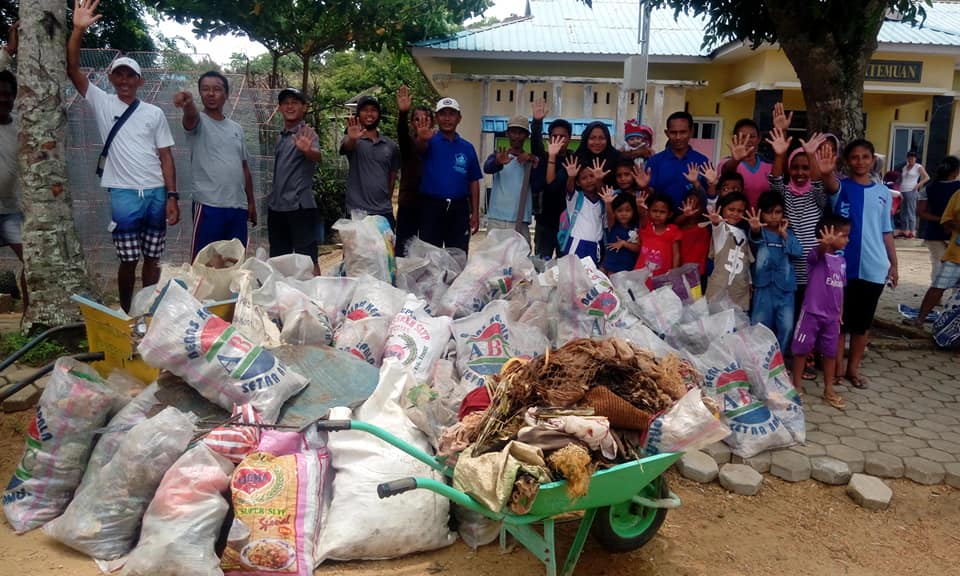
“Sustainable Design” Award Winner - Six Senses Vana, India
The Six Senses Vana is a resort with 86 keys located in Dehradun, North India. One of the first hospitality business in India to receive LEED Platinum Certification in 2015 by scoring 82 points and meeting various criteria on sustainable procurement, energy and water conservation, transportation, building materials, and more. The resort and the team minimize their impact on the site and the nature surrounding them, the design takes inspiration from nature and being in harmony with it.
The simple contemporary architecture and clear aesthetic are designed to include sustainable materials, neutral palette, large openings to allow natural light in the buildings, and to evoke a sense of comfort and wellbeing.
FSC Certified timber and low VOC paint have been specified as well as windows which meet LEED fenestration guidelines. The resort ensures environmentally friendly emissions by installing wet scrubbers on their boilers and diesel generators. All the resort textiles like uniforms, bed and bath linens for guests are made of organic cotton produced in the South of India.
Several energy and water conservation best practices have been implemented like motion-detection systems, “in Com Control”, BMS system, 100% LED lighting, solar panels, heat pumps and energy efficient equipment.
No water gets wasted: rainwater is collected, treated, and used to irrigate the resort grounds, a bottling plant eliminates the use of plastic bottles and low flow faucets reduce the use of
fresh water, while a high-efficiency sewage treatment plant recycles gray water.
Native species are found in the landscape which grow faster and better suited to the local climate and require less water for irrigation than exotic varieties. Fallen leaves and green clearing are used for mulch to rebuild healthy soil and planting beds.
Clearly looking at all this we see how for this property sustainability is not a checklist but a way of life. And all these sustainable initiatives are not only helping the environment, the sense of harmony and wellbeing create a perfect retreat where guests can rest, reflect and connect with their inner self.
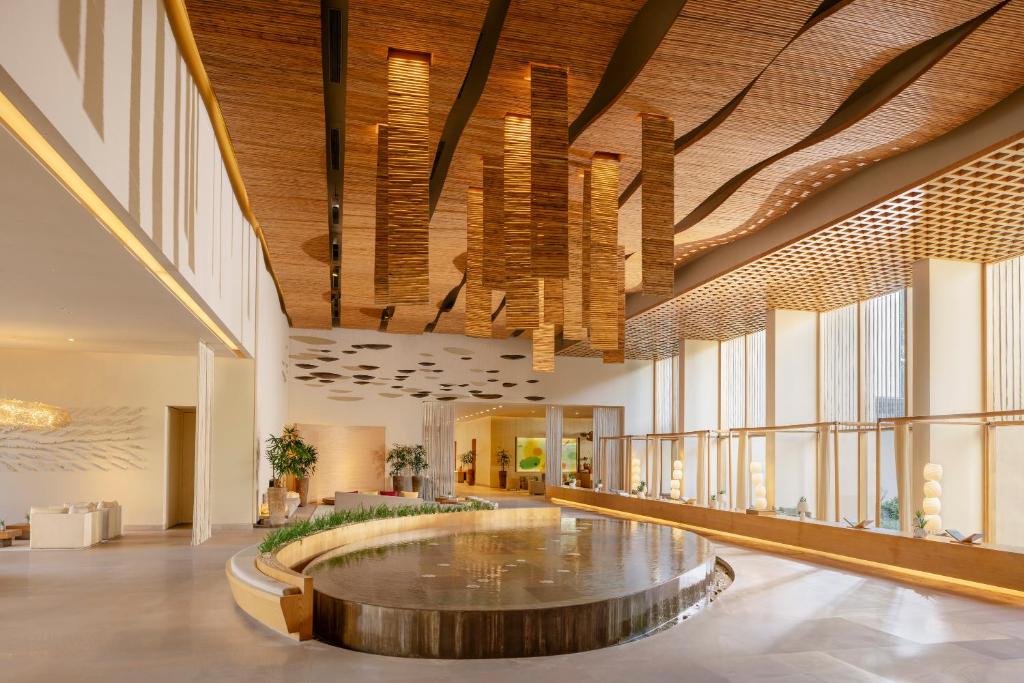
All award winners are doing exceptionally well in their respective categories. More importantly, we can see they are not just showcasing sustainable hospitality in a particular aspect but adopt an inspiring and holistic approach.
As HICAP recognizes hotels for their sustainable efforts, it also documents the changes in depth and scope in sustainable tourism over the years with the advancement in technology and rising awareness. Looking from a broader perspective, sustainability is much more than what you do and how you do it, it is more about awareness and mentality. Therefore, the positive impacts of these wonderful winners are beyond the walls of their properties and can’t be quantified simply by carbon reduction. Hotels welcome guests from all over the globe every day. Thus, these conservation concepts the winners are demonstrating and promoting would be small seeds planted in the hearts of these global travellers, leading them to a more sustainable and responsible lifestyle when they return home. The success of the award winners shows sustainable hospitality is not simply a checklist, but a change in the way of doing business and how we can and should interact with the environment and community. In this regard, the benefits and impacts are beyond measure.
Contributing Authors:
- Chelsea Wong, Consultant, Horwath HTL
- HICAP Sustainable Hotel Award Judges:
- Chiara Calufetti, Associate Vice President, WATG
- Eric Ricaurte, Founder & CEO, Greenview
- Claire Whitely, Head of Environment, Sustainable Hospitality Alliance